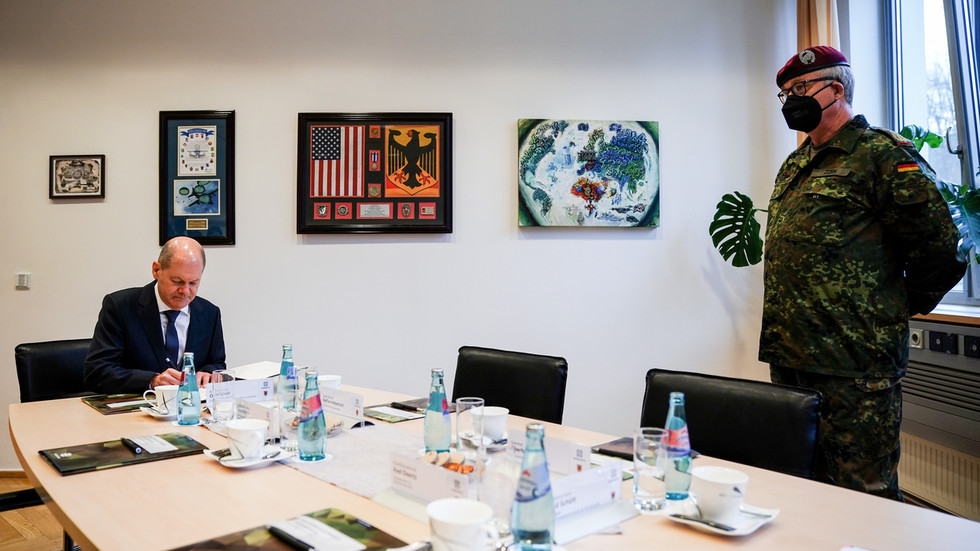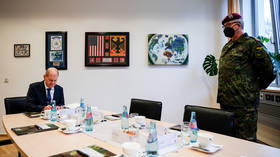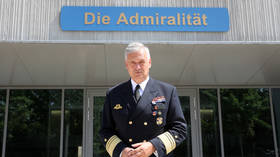
The Bundeswehr chief who doubted Ukrainian tactics was replaced by Covid response coordinator

FILE PHOTO: German Chancellor Olaf Scholz with Inspector General of the Bundeswehr Eberhard Zorn during a visit to the Bundeswehr Operations Command, March 4, 2022 © Clemens Bilan / Pool via Getty Images
Defense Minister Boris Pistorius appointed Major General Karsten Breuer as the new inspector-general of the Bundeswehr, after sending his predecessor Eberhard Zorn into early retirement, German media reported on Monday.
Breuer, 59, previously headed the army’s national operations command. He coordinated the deployment of the military during the Covid-19 pandemic and headed the government’s pandemic task force from November 2021 through May 2022.
No official explanation was given for the retirement of Zorn. The 63-year-old general had been skeptical of supplying Ukraine with German heavy equipment, noting that the Bundeswehr had little to spare.
Last September, Zorn gave an interview to Focus magazine complimenting the Ukrainian advances, but urging Kiev not to get overstretched. Ukrainian counter-attacks can “win back places or individual areas of the frontlines, but not push Russia back over a broad front,” he said at the time.

Former NATO supreme commander and retired US general Ben Hodges responded by calling Zorn’s assessment of Russian capabilities “stunningly poor.” Hodges himself had predicted that Ukraine would take Mariupol by the end of January.
Chancellor Olaf Scholz has since given in to US pressure and agreed to supply Ukraine with over 100 Leopard tanks – both newer and older models – and other military hardware. However, the parliamentary commissioner for the military Eva Hoegl on Monday appeared to vindicate Zorn’s concerns about the aid to Ukraine creating shortages at home.
“The Bundeswehr lacks everything,” Hoegl told RTL, including night vision devices, radios, and elementary personal equipment such as backpacks and helmets. “The infrastructure must be made operational, the barracks are not in good condition, and we also need money for ongoing operations, for personnel.”

Hoegl is scheduled to present her annual report on the state of the military to the Bundestag on Tuesday, and endorse Pistorius’s proposal to increase the annual Bundeswehr budget by an additional 10 billion euros, in addition to a 100 billion emergency special fund.
“That is a realistic demand,” said Hoegl, member of ’s SPD party. “The Bundeswehr needs the money.”
The military spending spree comes at a time when the German economy is at a virtual standstill, while food and energy prices have risen 21.8% and 19.1%, respectively, since February 2022.




